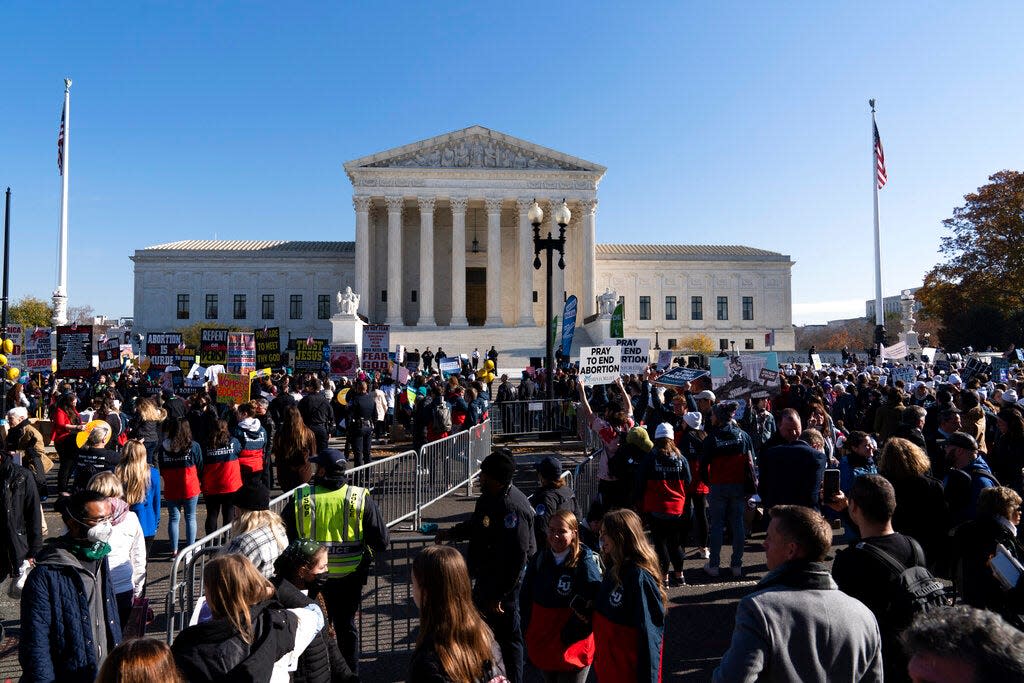Viewpoint: Overturning of Roe v. Wade makes it difficult to dismiss 'legal realism'

During my law school years, one of the courses I took was jurisprudence. Unlike most other classes, which taught the “nuts and bolts” of the legal system, jurisprudence was more philosophical, examining the origins and evolution of law.
One of the concepts taught was “legal realism.” This theory contends that there is no such thing as law, simply judges doing whatever they please, based upon their subjective opinions and biases, and calling it law.
Law schools and the legal system are often less than eager to acknowledge legal realism. After all, who wants to pay thousands of dollars to study law when, despite all the supposed reasoning, logic and analyses one is taught, the reality is that, regardless of how much research attorneys have done or how much “law” is on their side, the outcome of every case is based upon the whims of the presiding judges?
Critics of legal realism contend that it is readily disproven by the doctrine of stare decisis, which is when courts follow the previous decisions of other courts, even though those decisions are antithetical to a judge’s personal beliefs.
But with the demise of Roe v. Wade, legal realism is not so easily dismissed.
When the Constitution and Bill of Rights were created, America’s founders knew it was impossible to foresee every future contingency. So they had the sagacity to include the Ninth Amendment, which states that Americans are entitled to rights not expressly mentioned in these documents.
Some of these rights, known as implied or unenumerated, are the right to travel; the right to marry; the right for adults to engage in consensual sexual activities; and the right to privacy, which was the foundation of Roe. Such rights are, like their expressed counterparts, considered to be “fundamental.”
So, while people can and do have disagreements about abortion, one of the lesser, but also disturbing, concerns about the actions of the so-called “conservative” wing of the current Supreme Court is that the abolition of Roe could invariably lead to the abolishment of other implied and unenumerated rights.
Naturally, we have saccharine assurances that the dismantling of Roe will not create this “slippery slope.” But did we not also have assurances from several of these justices during their confirmation hearings that Roe was settled law and/or they would follow stare decisis? And Clarence Thomas has made it clear he is already setting his sights on abolishing other implied rights, including the rights to contraception and same-sex marriage. What makes this even more hypocritical is that Thomas’s interracial marriage might still be illegal in numerous states had the Supreme Court, in 1967, not supported the implied right to marry in Loving v. Virginia.
Still, the Supreme Court may have hoisted itself on its own petard, because its power to overturn Roe is also based on an implied right this court created for itself: The right of “judicial review.”
Judicial review is not expressly mentioned in the Constitution or Bill of Rights and is instead the result of the 1803 case of Marbury v. Madison. Thus, if members of today’s Supreme Court can exploit an implied right that empowers them to erase other implied rights they have personal disdain for, why shouldn’t the other two branches of government — the United States Congress, or the President through an executive order — have commensurate authority to erase the implied right of judicial review?
One might ask: Wouldn’t the Supreme Court simply determine that such an action is unconstitutional?
Well, that would be impossible, because if judicial review no longer existed, the courts would have no legal authority to do so.
David R. Hoffman is a retired constitutional law and civil rights attorney.
This article originally appeared on South Bend Tribune: Legal realism, judicial review up in the air with end of Roe v. Wade

